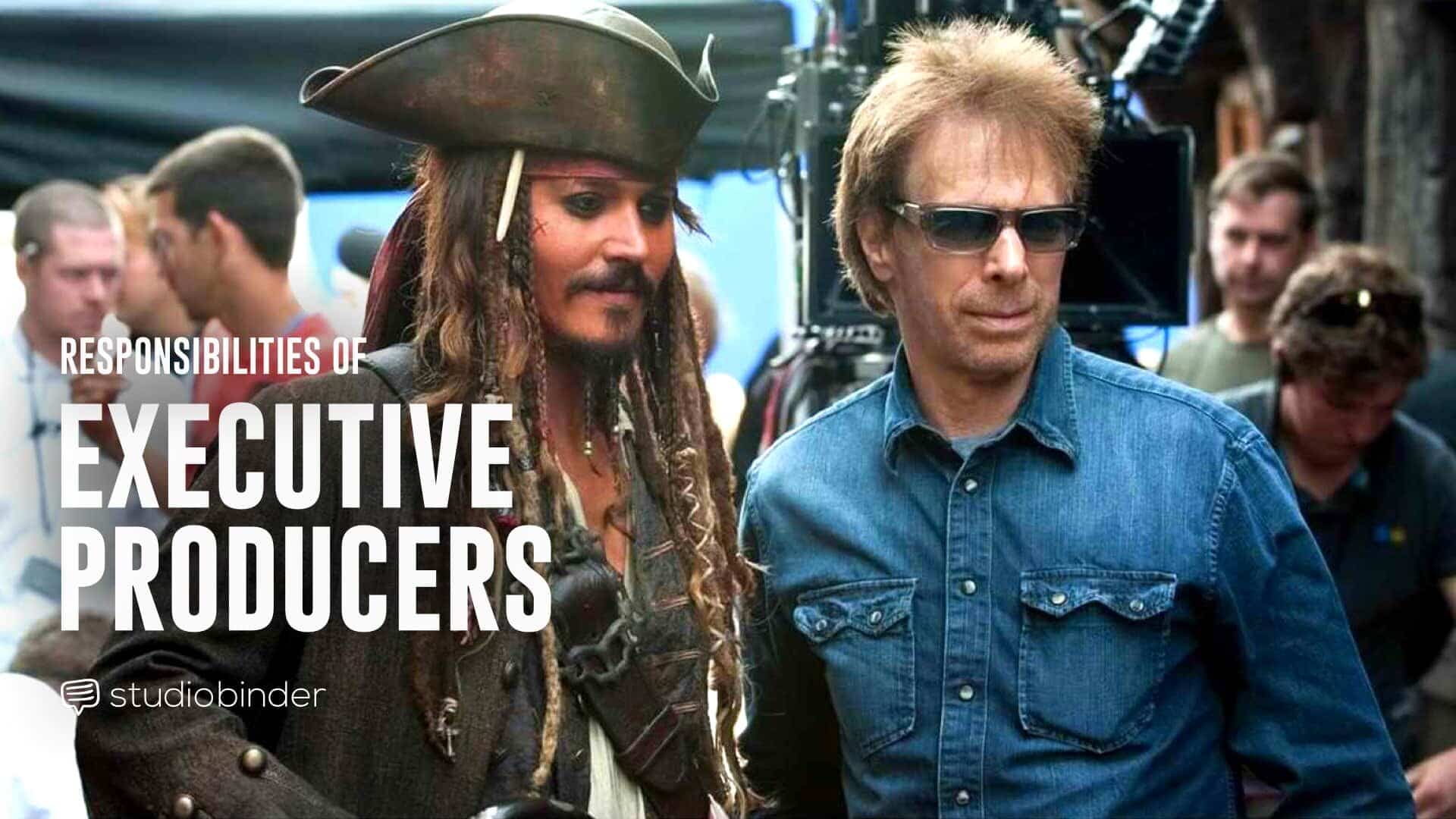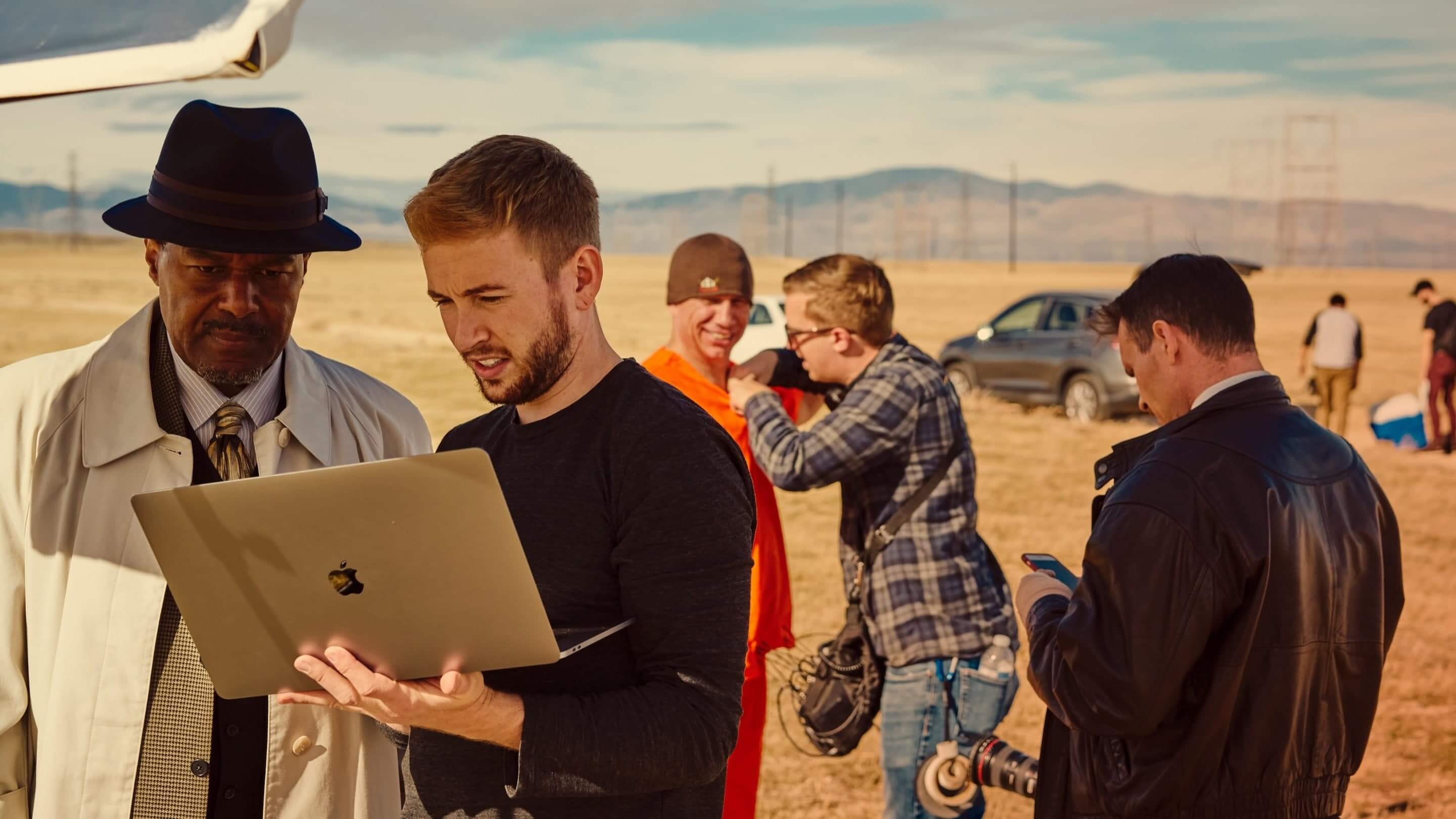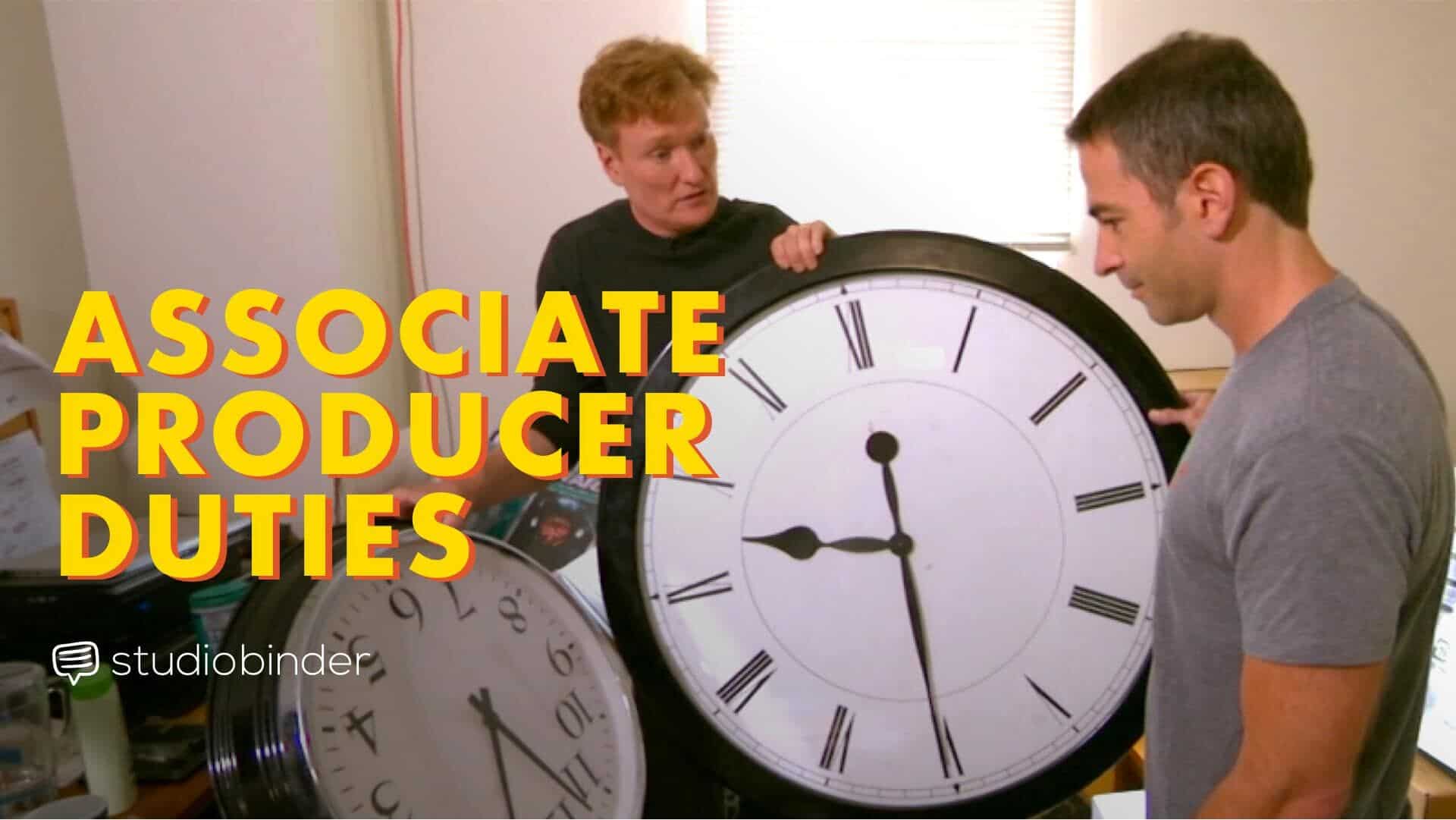What Does An Executive Producer Do On A TV Show
Ever wonder about the people who make a television show come to life? It's a big team effort, for sure, and there are a lot of folks who contribute their skills. Among them, you find someone called an executive producer. This person's presence is often felt across a production, shaping things in ways you might not always see from the outside. Their role, in a very real sense, involves a lot of action, a lot of getting things done, and a lot of making sure the show moves forward.
To really get a grip on what an executive producer performs on a TV show, it helps to think about actions and who carries them out. Just like in language, where the way we talk about someone's actions changes depending on who that person is, the work of an executive producer has its own particular way of being described. It’s about understanding the specific verb forms that fit their contributions, whether they are working alone or as part of a larger group, you know?
We're going to walk through how the very idea of "doing" applies to this important role in television. We'll look at how grammar, in a rather interesting way, helps us pinpoint the activities an executive producer is responsible for. It's almost like a guide to describing their impact, showing how their contributions are spoken about in the present, and how their past efforts also shape the present show.
Table of Contents
- What Does An Executive Producer Do On A TV Show - Understanding the Core Action
- Who Does the Executive Producer Work With?
- How Does an Executive Producer Influence the Show?
- What Does An Executive Producer Do On A TV Show - The Singular Force
- Distinguishing Actions - Do Versus Does in Production
- What Does An Executive Producer Do On A TV Show - Past Actions and Present Impact
- Why Does Precise Language Matter for Executive Producers?
- What Does An Executive Producer Do On A TV Show - A Quick Look at Definitions
What Does An Executive Producer Do On A TV Show - Understanding the Core Action
When we talk about what an executive producer does on a TV show, we are really talking about the very idea of action itself. The words "do" and "does" are both ways we express something happening right now. For someone in this kind of position, their actions are always happening, always in motion, so to speak. It's a continuous process of making things happen for the program, for instance. The difference in which word you pick, "do" or "does," really just comes down to who you are talking about. If you are speaking about the executive producer as a single person, a "he" or a "she" or even an "it" if you are referring to the role itself, then "does" is the word you would use to describe their present activities. This is a simple but pretty important point for how we talk about their work.
So, an executive producer "does" things. They don't just sit there, you know? Their involvement means they are actively performing tasks, making choices, and seeing to it that various parts of the production move along. The present tense form of "do" when used with a singular person, like an executive producer, becomes "does." This means that every single thing they are responsible for, every task they perform, every decision they make right now, is accurately described by saying they "do" or "does" it. It’s a pretty direct way to talk about their current efforts on a show.
To put it simply, if you want to speak about the actions of one executive producer in the here and now, you will naturally use the word "does." This reflects that their work is ongoing, a steady stream of contributions to the TV show's progress. It's a key piece of language for anyone trying to describe what an executive producer does on a TV show, providing a clear picture of their active involvement.
Who Does the Executive Producer Work With?
The way we talk about what an executive producer does on a TV show can shift depending on who else is involved. While the executive producer themselves "does" many things, they are also part of a larger collective. When you consider the group, like the whole production team, or if you are speaking directly to someone about what "you" do, the word "do" becomes the correct choice. For example, the executive producer might say, "I do believe in this story," or "We do need to adjust this schedule." This shows how the actions are linked to different subjects, whether it's the single person, a group, or even the audience, you know?
It's interesting, in some respects, how this works. The executive producer, as an individual, "does" certain things. But when we talk about the collective effort, perhaps what "they" do as a team, or what "we" do as a unit, the word changes. This subtle shift in language helps us distinguish between the personal contributions of the executive producer and the shared responsibilities of everyone else working on the show. It paints a more complete picture of how the show gets made, recognizing both individual effort and group activity, which is pretty neat.
So, while an executive producer "does" their part, the wider team "does" theirs. This distinction is quite important for clearly talking about the different levels of contribution to a television program. It’s about recognizing that the executive producer's work fits into a bigger picture, where many people "do" their share to bring the show to the screen.
How Does an Executive Producer Influence the Show?
An executive producer's influence on a TV show is often expressed through their actions, and how those actions are described using language. When we ask, "How does an executive producer influence the show?" we are really asking about the specific things that person "does" to shape the program. This might involve making big picture choices, guiding the creative direction, or making sure the overall vision stays true. The word "does" here points to their direct, active involvement in these areas, you know?
For example, an executive producer "does" approve scripts, or "does" give feedback on casting choices. These are direct actions that show their impact. The grammar reflects this direct connection between the person and the activity. It's not just about what they oversee, but what they actively contribute to, what they actually perform. This way of speaking helps us see their hand in the making of the show, which is pretty cool.
Their influence, therefore, is tied to these specific "does" actions. Every time an executive producer makes a call, gives an instruction, or signs off on something, they are performing an action that shapes the show. The word "does" perfectly captures this active participation, showing that they are a force behind the program's creation and ongoing life.
What Does An Executive Producer Do On A TV Show - The Singular Force
The executive producer, as a single individual, carries out many tasks. When we speak about this one person and their activities in the present, we consistently use the word "does." This means that every single thing they are responsible for, every task they perform, every decision they make right now, is accurately described by saying they "does" it. For example, "She does review the daily rushes," or "He does meet with the network executives." These examples highlight the individual's direct actions. It is a way of speaking that pinpoints the specific contributions of one person, making it clear that the action originates from them, you know?
The grammar here is quite specific. It helps us keep track of who is doing what. If you are talking about the executive producer, that specific person, the word "does" is the correct choice for their current activities. This applies to all their present simple actions, whether it is something they do every day, or something they do as a general practice. It shows their ongoing participation and responsibility in the production process, which is pretty important.
So, when you consider what an executive producer does on a TV show, remember that their individual efforts are always marked by the use of "does." This word acts as a signpost, pointing to their direct involvement and the things they are actively making happen for the program. It’s a simple word, but it carries a lot of weight when describing the work of a single person in this kind of position.
Distinguishing Actions - Do Versus Does in Production
It's interesting to consider how the words "do" and "does" help us tell apart different kinds of actions in a TV production. These two words, while often mixed up, have quite distinct uses. "Do" is for when you are talking about "I," "you," "we," or "they." So, the team "does" a lot of work, or "we" do a lot of planning. But when it comes to the executive producer, a singular "he," "she," or "it" (referring to the role), it's always "does." This separation helps to clarify who is performing the action, which is actually quite useful for keeping things clear in a busy production environment, you know?
Think about it this way: the executive producer "does" certain things, like making final calls on budgets or approving creative directions. But then the crew "does" the actual filming, and the writers "do" the script development. This distinction, while seemingly small, helps us to accurately attribute actions to the right people or groups. It's about being precise in our language when we talk about what an executive producer does on a TV show, compared to what others perform. This precision helps everyone understand their own part and the parts of others.
This guide to "do," "does," and even "did" (for past actions) helps us speak and write about a TV show's creation with greater accuracy. It allows us to pinpoint the specific actions of an executive producer versus the collective efforts of the team. This clarity is pretty important for anyone who wants to speak correctly about how a show gets made and who contributes what. It makes a real difference in how we describe the complex web of activities that make up a television program.
What Does An Executive Producer Do On A TV Show - Past Actions and Present Impact
The work of an executive producer isn't just about what they are doing right now; it's also about what they have done in the past. The word "did" comes into play when we talk about actions that are already finished. For example, "The executive producer did secure the funding for the pilot episode last year." This past action, though completed, still has a very real impact on the show's present existence. So, their past efforts continue to shape what is happening today, which is kind of interesting.
Understanding when to use "do," "does," and "did" is quite important for accurately describing an executive producer's influence over time. It allows us to talk about their ongoing responsibilities ("She does oversee the post-production") as well as their foundational contributions ("He did bring the original concept to the studio"). Both types of actions are vital to the show's overall success. It's about seeing the full scope of their involvement, from the very beginning stages to the current broadcasts, in a way that truly makes sense.
So, when we consider what an executive producer does on a TV show, we are really looking at a continuous line of action, stretching from past decisions that "did" happen, to present responsibilities that "does" happen. This complete picture helps us appreciate the depth of their commitment and the lasting mark they leave on a production. It shows that their work is not just a snapshot, but a long story of contributions.
Why Does Precise Language Matter for Executive Producers?
Using the correct form of "do" or "does" might seem like a small detail, but it actually holds real weight when you are talking about what an executive producer does on a TV show. Being precise in your language means you can communicate clearly about who is doing what, and when. This helps avoid confusion, which is pretty important in any big production where many people are working together. When you say "the executive producer does," everyone knows you are talking about that specific person's current activities, you know?
This precision in language also shows a proper respect for the roles and responsibilities within a television crew. It acknowledges the specific contributions of an executive producer as an individual, rather than lumping their efforts in with everyone else's. It's about giving credit where credit is due, and making sure that the unique actions of this key person are clearly understood. This clarity can help in many ways, from setting expectations to giving proper recognition.
So, whether you are writing about a show, discussing its making, or just curious about the people behind the scenes, using "do" and "does" correctly for an executive producer's actions is a small but significant step. It helps you speak about their work with accuracy and respect, giving a truer picture of what an executive producer does on a TV show.
What Does An Executive Producer Do On A TV Show - A Quick Look at Definitions
To really nail down what an executive producer does on a TV show, it helps to look at the very meaning of the word "does" itself. The dictionary describes "does" as the present tense form of "do," used when the subject is a singular noun or pronouns like "he," "she," or "it." This definition, straight from a reliable source, confirms that when we talk about the executive producer's current activities, "does" is the proper word. It covers the meaning, how it sounds, how it looks when written, example sentences, and even grammar notes, you know?
This formal definition reinforces the idea that the executive producer, as a singular entity, performs actions in the present. It means that every single thing they are actively involved in right now falls under the umbrella of "does." From making big creative decisions to overseeing various departments, their current contributions are all captured by this one little word. It provides a solid foundation for understanding their active role in a television production, which is pretty helpful.
So, in essence, when you hear or read about what an executive producer does on a TV show, you are hearing about the active, present tense contributions of a single, important person. The simple word "does" carries the weight of their ongoing involvement and their direct hand in shaping the program. It’s a clear way to talk about their work.
To recap, we've explored how the words "do" and "does" are quite important for describing what an executive producer performs on a TV show. We looked at how "does" is used for the individual actions of the executive producer, while "do" is for collective efforts. We also touched on how past actions, using "did," continue to shape the present. The precision in using these words helps to clearly communicate the executive producer's specific contributions and ongoing involvement in a television program.
- Travis Kelce And Taylor Swift
- Karla Sofía Gascón
- Skibidi Toilet
- Jodie Turner Smith
- Jennifer Lawrence

What Does an Executive Producer Do — Film/TV Role Explained

What Does a Producer Do — Types & Roles Explained

What Is an Associate Producer and What Do They Do?